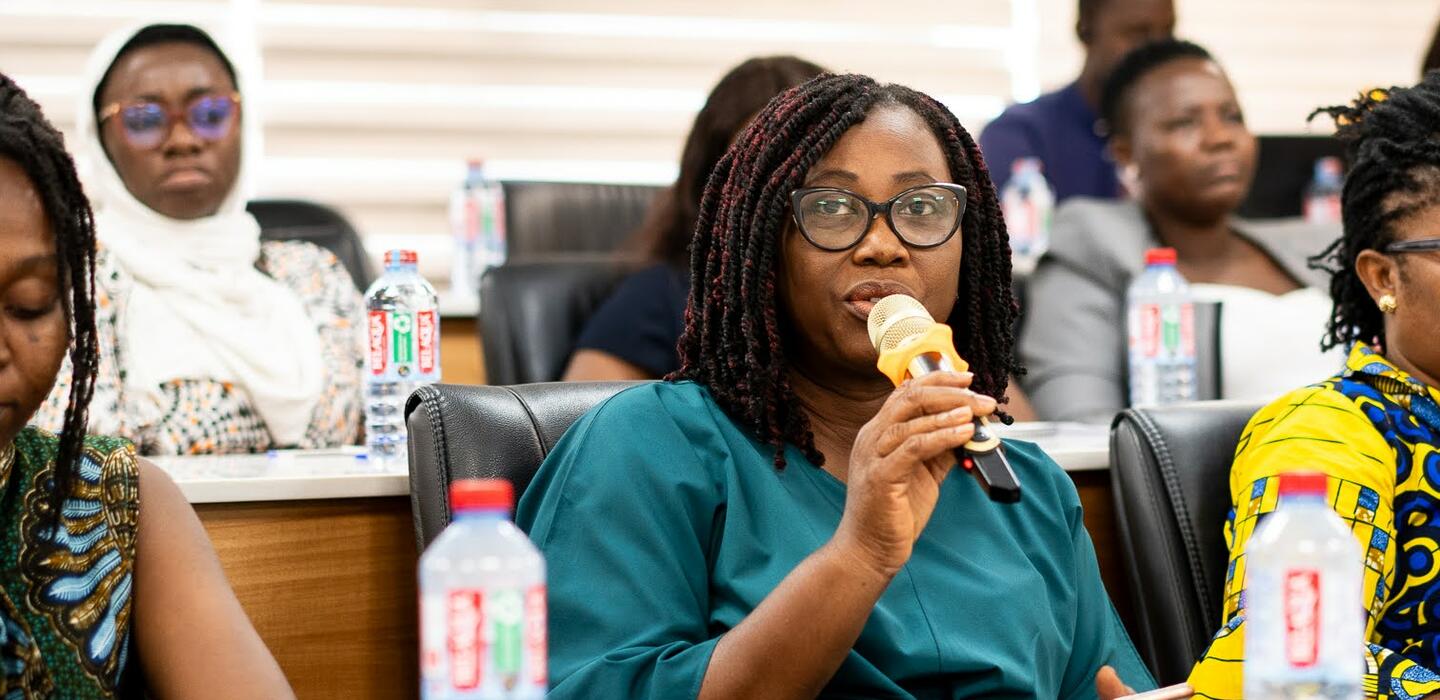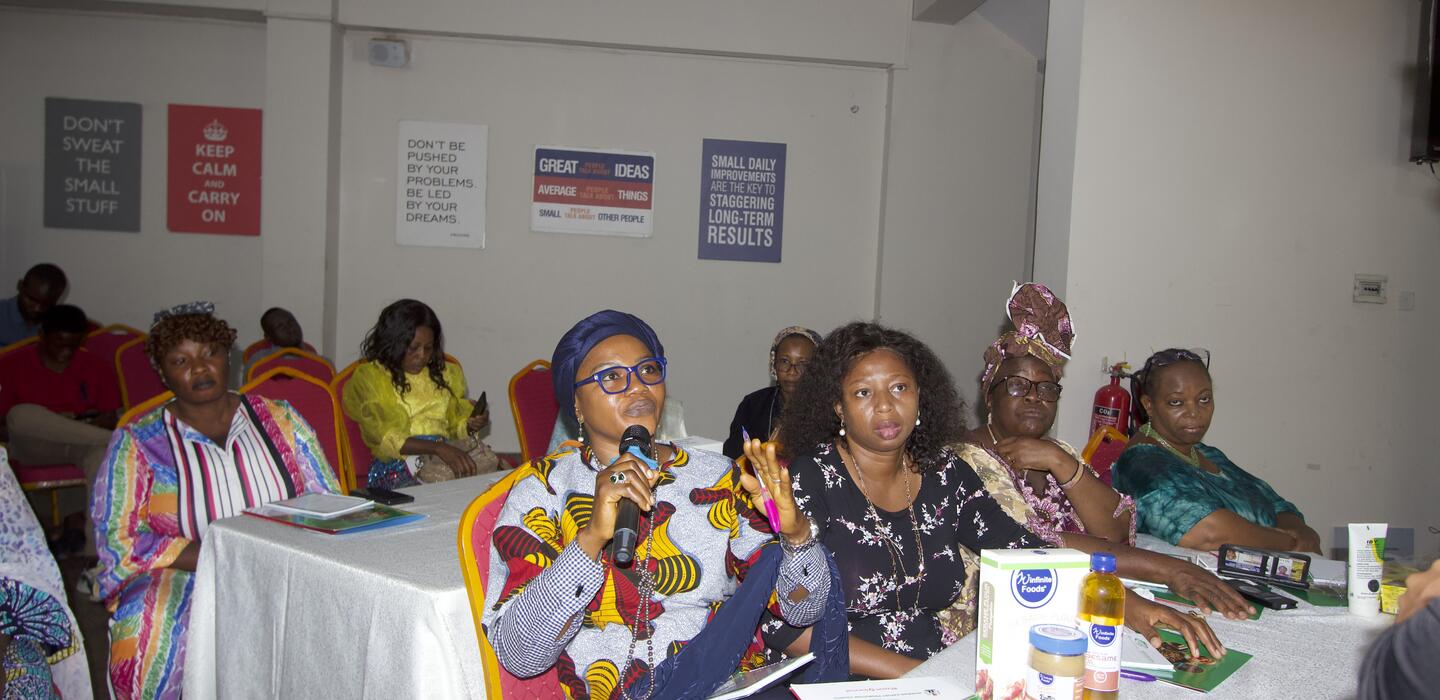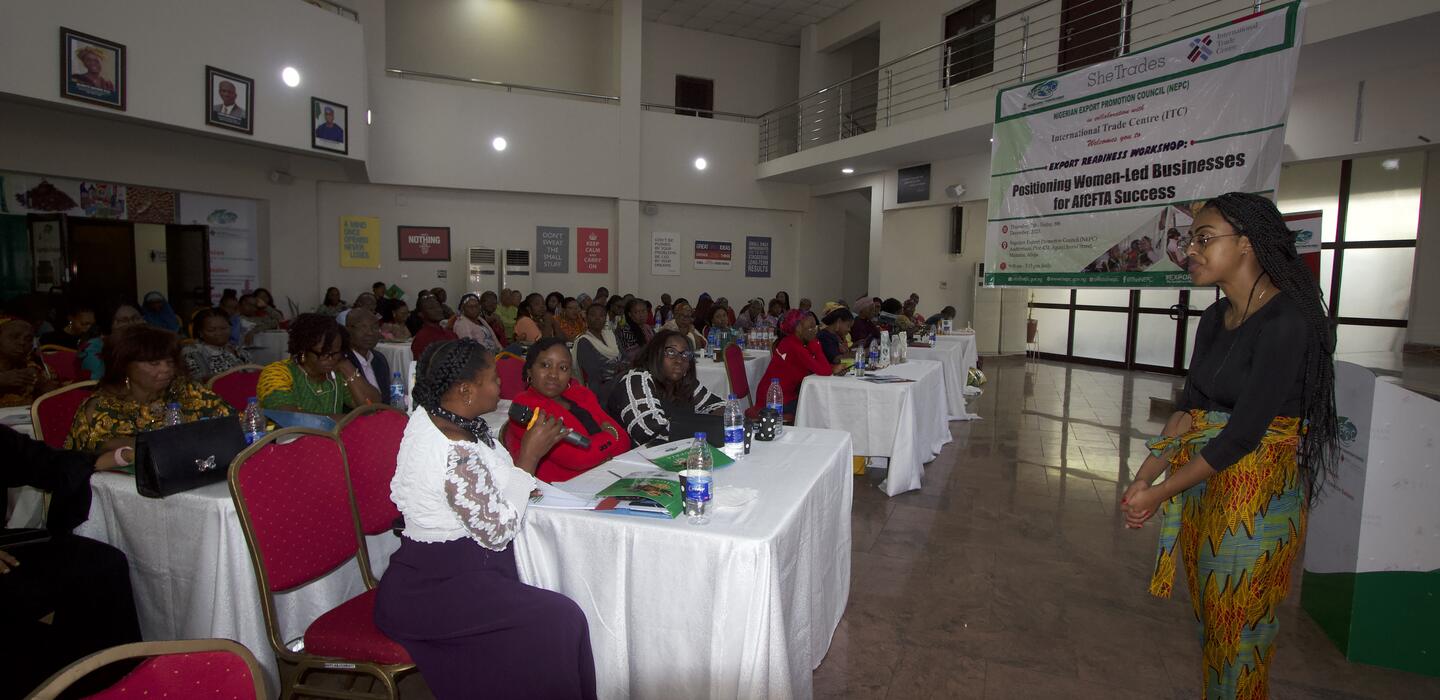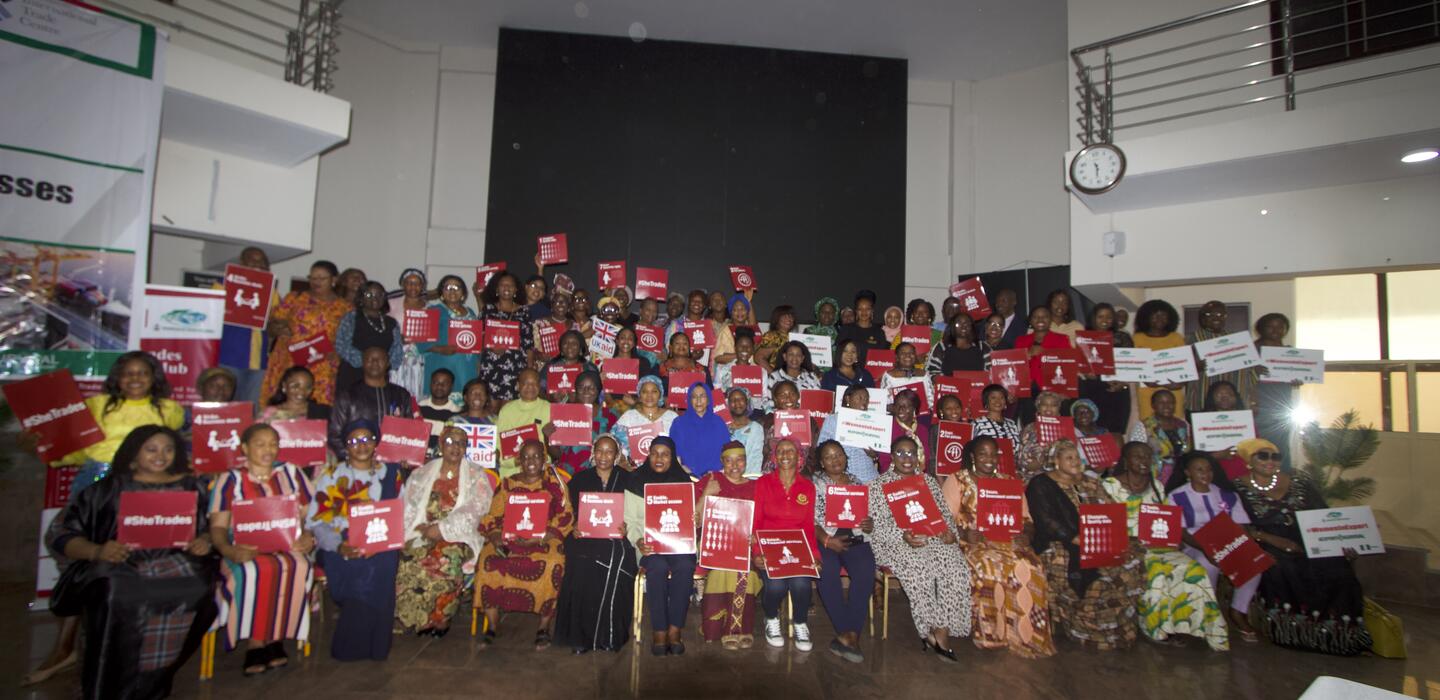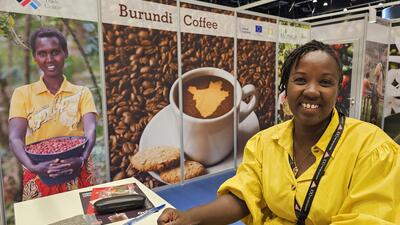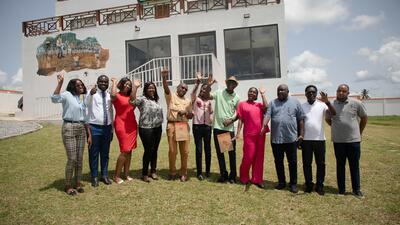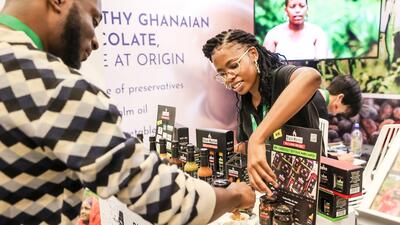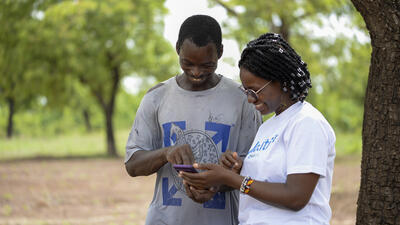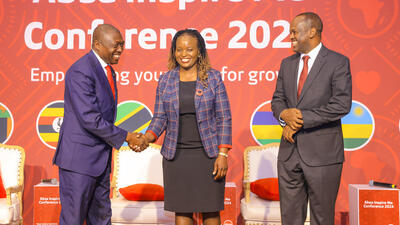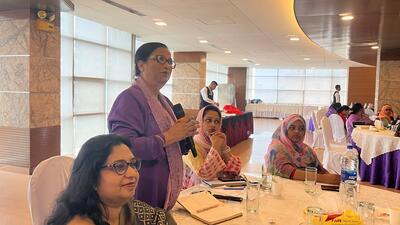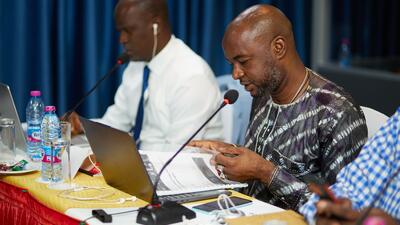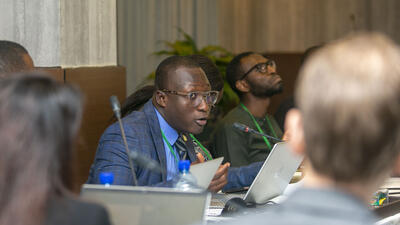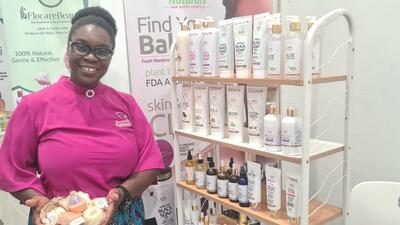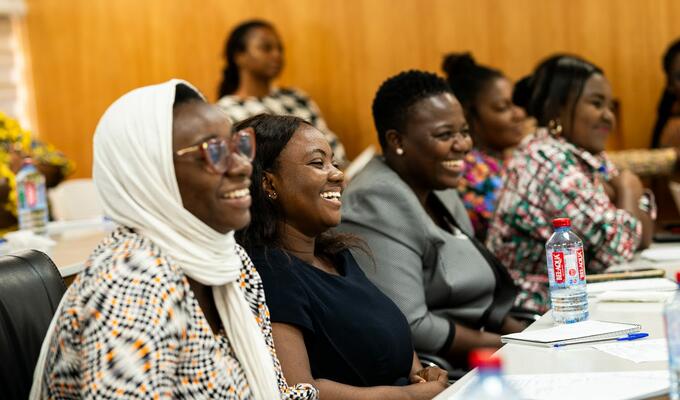
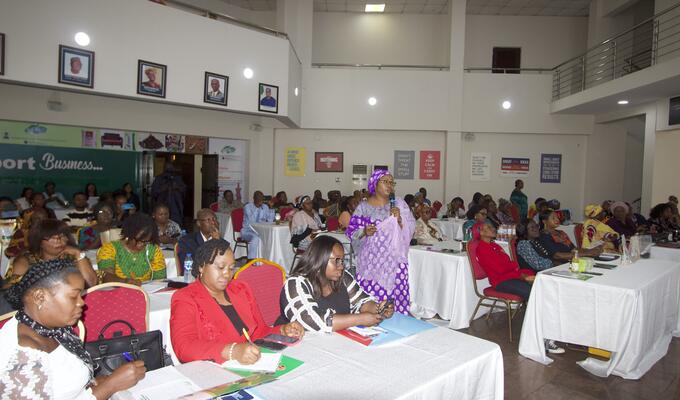
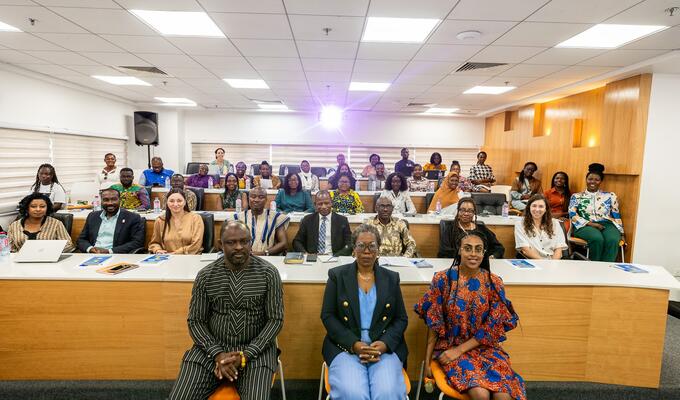
150 Ghanaian and Nigerian women improved market-related soft skills
Women entrepreneurs in Ghana and Nigeria face a multitude of barriers when they want to sell their goods to other countries. They often lack information on trade policies, market analysis tools, and soft skills like negotiation strategies.
Export readiness trainings and policy discussions can bridge those gaps, making their exports more competitive.
The International Trade Centre (ITC) conducted two similar training events in December in West Africa. Fifty women attended in Accra, Ghana, on 4-5 December 2023. Another 100 women attended the event in Abuja, Nigeria, on 7-8 December.
In Accra, the training was co-organized with the Ghana Export Promotion Authority (GEPA), which is set to host the new SheTrades Ghana Hub from March next year.
In Abuja, the programme co-organized the event in collaboration with the Nigerian Export Promotion Council (NEPC), the host institution of the SheTrades Nigeria Hub.
SheTrades Hubs are resource centres for women entrepreneurs. The ITC SheTrades Hubs network plays a vital role in connecting women entrepreneurs to market opportunities, resources and skills trainings.
In addition to the training events, a half-day policy dialogue in Accra and Abuja was facilitated by a project called Empowering Women and Boosting Livelihoods through Agricultural Trade: Leveraging the African Continental Free Trade Area. This project is a joint programme of ITC and the Food and Agriculture Organization of the United Nations (FAO).
Opportunities in the AfCFTA
During the policy session, women entrepreneurs and policymakers discussed the barriers to entry and market opportunities of the Africa Continental Free Trade Area (AfCFTA).
ITC and FAO representatives also presented policy recommendations on gender considerations in the AfCFTA. These related to ways that countries limit trade beyond tariffs, whether through health and safety rules or other technical regulations. They also discussed access to finance and how to better facilitate trade.
The rest of the sessions included training to boost business’ export competitiveness, including mapping company’s position against export-readiness criteria. They also looked at how to better identify market opportunities and negotiate business deals effectively.
Using a tool known as the Business Model Canvas, women entrepreneurs assessed their export potential and identified target export markets, creating market entry strategies for their business.
‘I intend to work thoroughly on my Business Model Canvas and focus on one major product to perfect it for export, instead of working on five different products at a time,’ said Gladys Dalung, Founder of Afrieden Foods Limited in Abuja.
For Ajike Dsani, Ghanaian woman entrepreneur and owner of cosmetics company AJIKE, the training to improve market knowledge and business-related soft skills brought a new perspective to her business’ approach to exporting.
‘It was an eye opener to learn about where we can map countries that needs our products. It was also important to know that attitude is way more important than skills in order to succeed as a business.’
By improving their skills and learning to identify regional trade opportunities, women in Ghana and Nigeria are better positioned to participate in trade.
The training portion of the event was supported by the SheTrades Commonwealth+ Programme, funded by the United Kingdom Foreign, Commonwealth and Development Office.
About the Empowering Women and Boosting Livelihoods through Agricultural Trade: Leveraging the AfCFTA Programme
Jointly implemented by the Food and Agriculture Organization of the United Nations and the ITC SheTrades Initiative, the Empowering women and boosting livelihoods through agricultural trade: Leveraging the African Continental Free Trade Area (EWAT) programme aims to support formal and informal women producers, processors, traders and entrepreneurs, and women’s cooperatives and associations to seize opportunities created by the AfCFTA in agriculture and agroprocessing value chains.
About ITC SheTrades Commonwealth+ Programme
Financed by the Foreign, Commonwealth and Development Office (FCDO) and launched in April 2018, the SheTrades Commonwealth+ programme aims to foster an enabling gender-inclusive business ecosystem by promoting inclusive policy and data and engaging business support organizations, private-sector partners, and women-led businesses in the Commonwealth+ countries.
About ITC SheTrades
The SheTrades Initiative which is the International Trade Centre's (ITC) flagship women and trade pro-gramme aims to remove barriers to women's participation in trade by working with governments, the private sector, and entrepreneurs to build the business capacities of women and to create a fairer, more sustainable global economy




